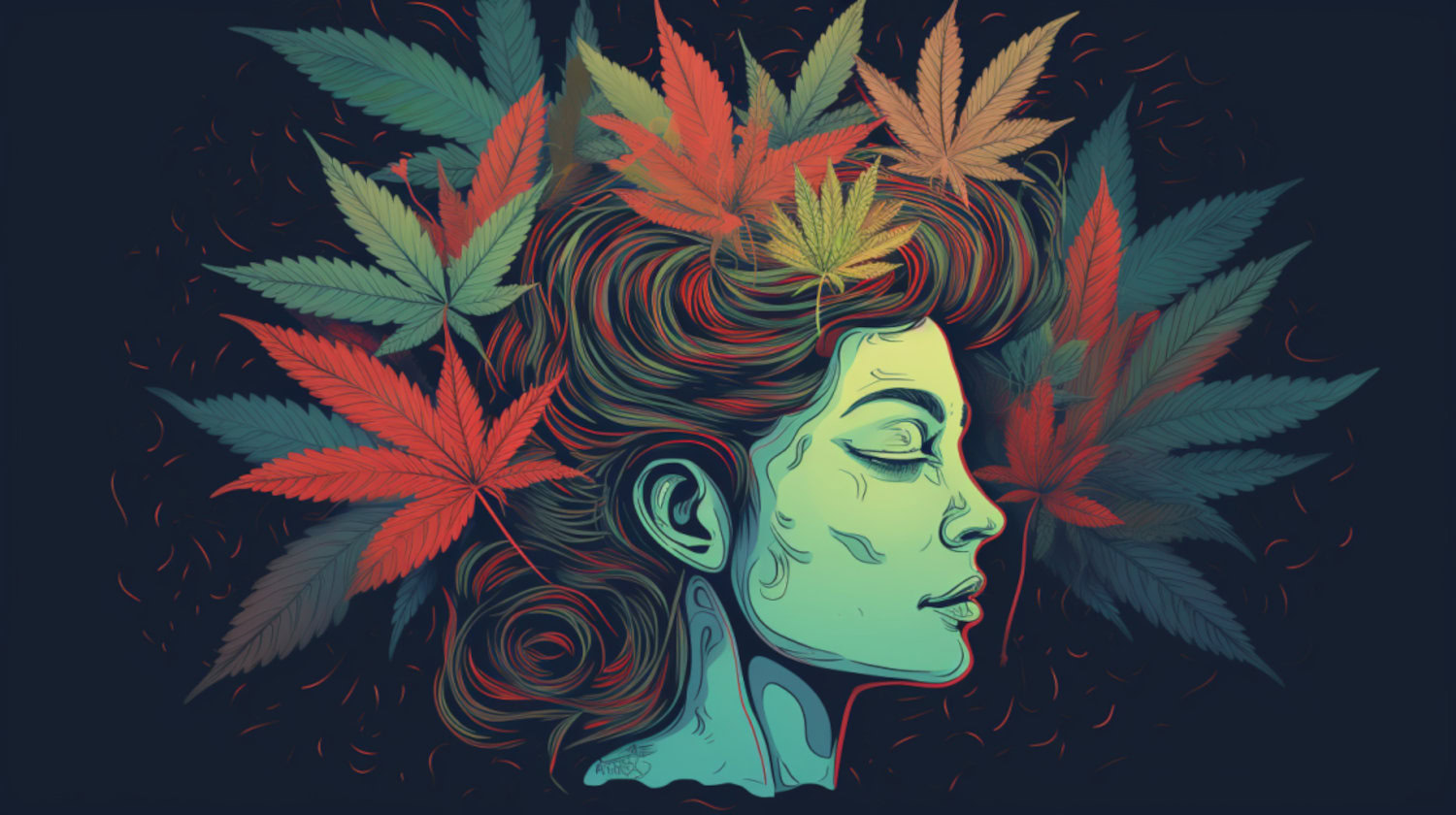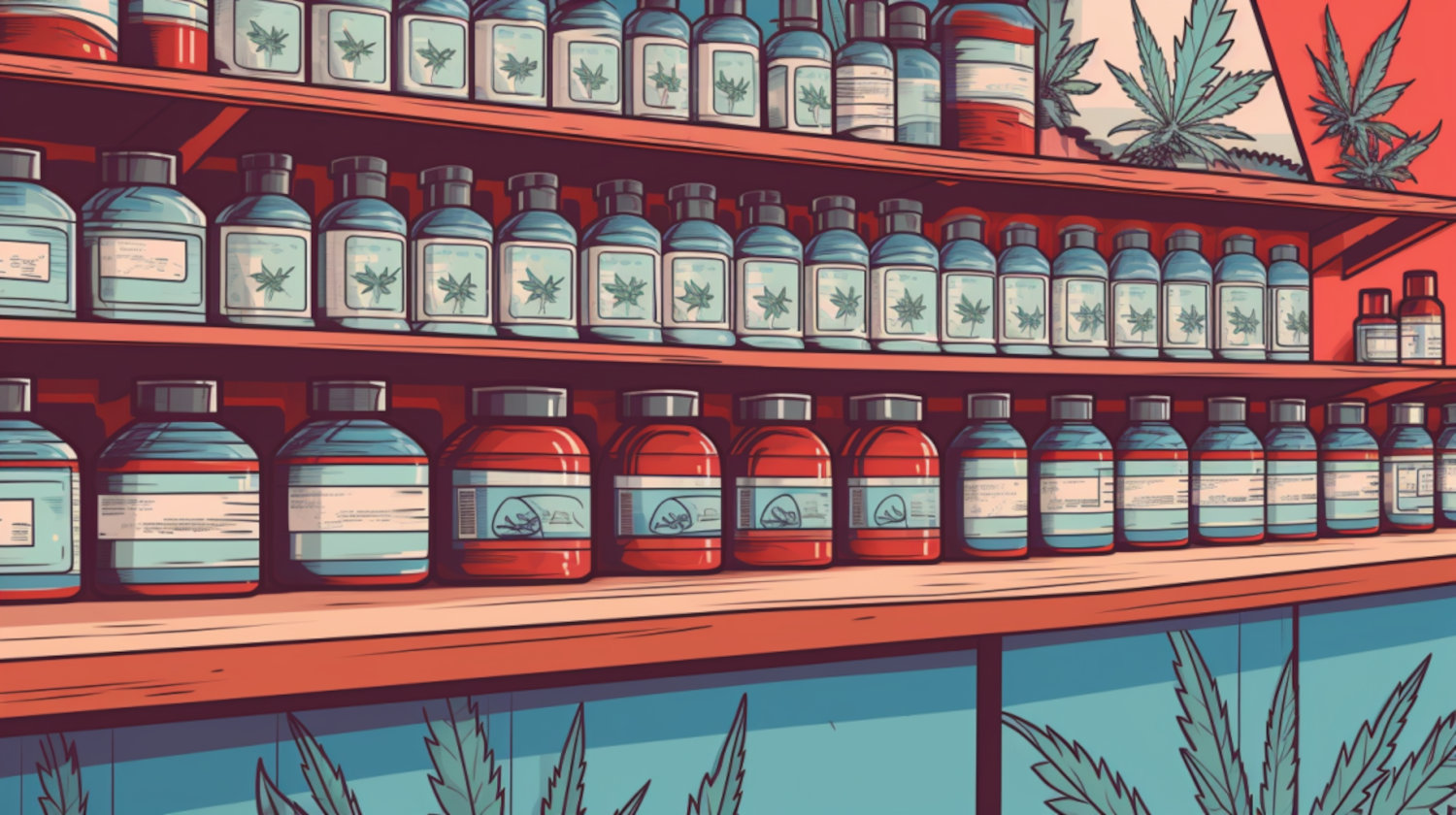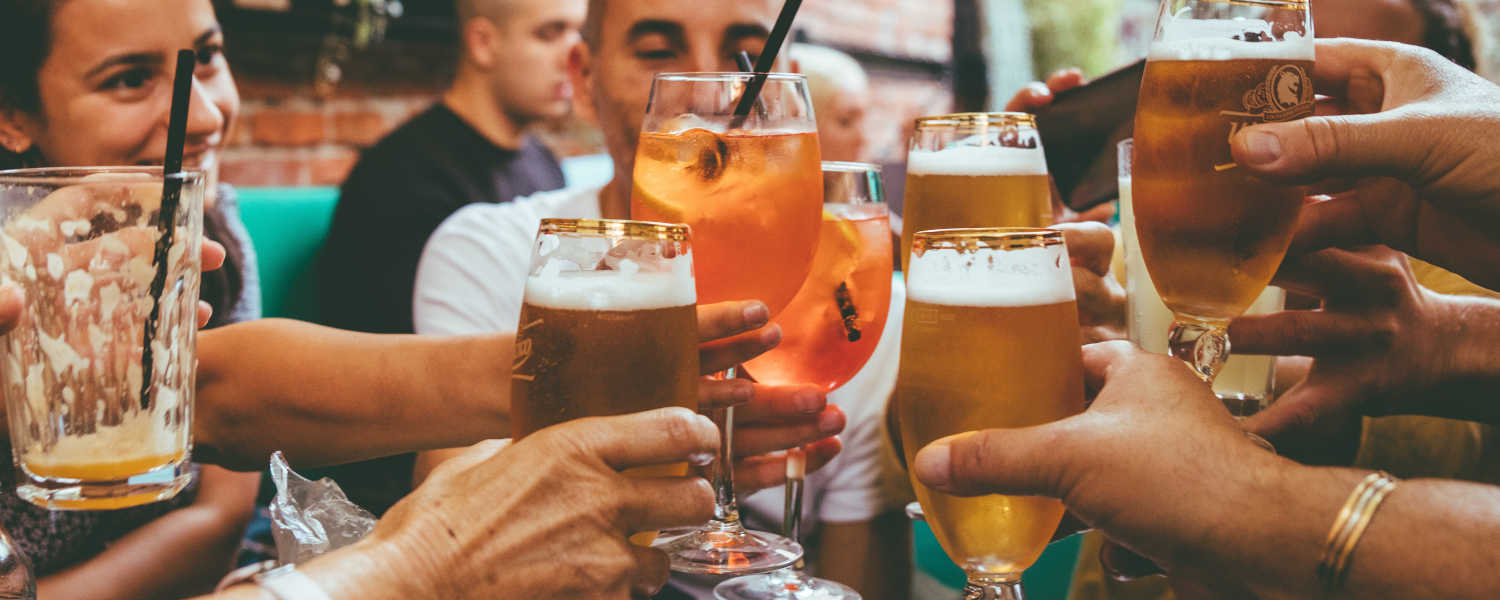In This Article
- What is Addiction?
- What is Cannabis Use Disorder?
- Can You Get Physically or Psychologically Addicted to Cannabis?
- Are Carts Addictive?
- Can You Get Addicted to Edibles?
- Am I Addicted to Weed? Know the Signs to Watch For
- How Common is Cannabis Addiction?
- How is Cannabis Addiction Treated?
- Ways to Prevent Cannabis Addiction
- Can You Get Help for Cannabis Addiction?
- References
Key Takeaways
- Cannabis use disorder (CUD) is a recognized condition characterized by problematic cannabis use.
- Risk factors include early initiation, frequent use, and underlying mental health conditions
- Symptoms involve cravings, withdrawal effects, and continued use despite negative consequences.
- Most people who use cannabis do not become dependent on it.
Marijuana addiction is a complex subject. Depending on which side of the argument you're looking at, you may find a completely different response to the question, "Can you get addicted to weed?"
On one end of the conversation are prohibitionists who believe that cannabis is a gateway drug, as the propaganda of yesteryear told us. On the other end of the spectrum are ardent cannabis enthusiasts who sometimes consider the plant a panacea that can do no wrong.
The truth is that cannabis can be addictive for some people but not most consumers. Making matters more complicated is the rollout of new, high-potency products and consumption methods.
There's a lot to learn in the world of cannabis, with issues like addiction presenting more nuanced answers than either side may care to admit.
What is Addiction?
Addiction is a persisting, relapsing, compulsive urge to use drugs and other harmful substances despite the known consequences. The disorder affects the brain's reward, stress, and self-control components and, over a long period, can lead to adverse health conditions, including heart disease, disrupted organ functions, and other lifelong or deadly outcomes.
Most people become addicted to substances following a desire to seek pleasure, alleviate stress, enhance performance of some kind, or due to curiosity and social pressure. Peer pressure plays a significant part in youth substance abuse development. Over time, the individual's reliance on the substance increases while their interest and enjoyment of other activities declines.
Addiction can be perplexing to those who don't experience it firsthand. Some may wonder why a person can't quit a harmful substance once they realize how much of a detriment it has become. But in reality, people with an addiction often don't realize how much of a problem it is until the substance has a grip on their lives to the point that their self-control is no longer functioning correctly. Research has noted that addiction affects various areas of the brain, including judgment, decision-making, and behavior control.
Another perplexing component of addiction is how one person can consume the same substance as another person, but only one becomes addicted while the other can enjoy it in moderation. This outcome is because not everyone experiences substances the same way. Nor does everyone experience the same environmental and biological factors that can increase the chances of developing an addiction.
What is Cannabis Use Disorder?
Cannabis use disorder (CUD) is the clinical term used when someone has trouble stopping cannabis use even if it's causing harm. People with CUD might build a tolerance, use more than they planned, or feel withdrawal symptoms when they stop consuming. CUD doesn’t affect everyone who consumes cannabis, but regular use - especially starting at a young age - can increase risk.
Can You Get Physically or Psychologically Addicted to Cannabis?

There is much still left to learn about cannabis use disorders and addiction. Like other substances, cannabis creates a rush of dopamine when consumed. This dopamine rush plays a critical role in addiction potential and suggests that marijuana can indeed be physically addictive.
While cannabis use does not pose the same deadly risks as drugs like amphetamines, many pharmaceuticals, and heroin possess, stopping use of the plant after becoming accustomed to increased levels of dopamine can cause adverse impacts on the brain and body. Research has noted that chronic use creates a downregulation in the body's CB1 receptors and is only restored after a prolonged break from consuming cannabis, often several weeks or possibly months.1
The likelihood of developing an addiction to weed varies depending on the source cited. Government sources tend to place the figure around 10%.
Cannabis use may be classified as an addiction if the user has begun consuming more and pulling away from other life activities and responsibilities, though not all consumers would agree this is a sign that an addiction has formed.
Other warning signs commonly associated with addiction that may occur after stopping use of cannabis include:
- Anxiety
- Appetite Changes
- Body Shakes
- Irritability
- Physical Discomfort
- Sleep Difficulties
Are Carts Addictive?
According to the above definition for addiction, weed carts and other cannabis products can be addictive for some consumers (though reports of addiction are so rare that there still is no consensus on whether cannabis addiction is real).
Certain studies have presented evidence suggesting that cannabis use disorder odds increase with increasing THC potency. If true, vape carts could create a higher risk of addiction due to their extracted oil containing a potency anywhere from 60% to 99%. Though concerns around lab test inflating could put actual potency lower in some products.
Can You Get Addicted to Edibles?
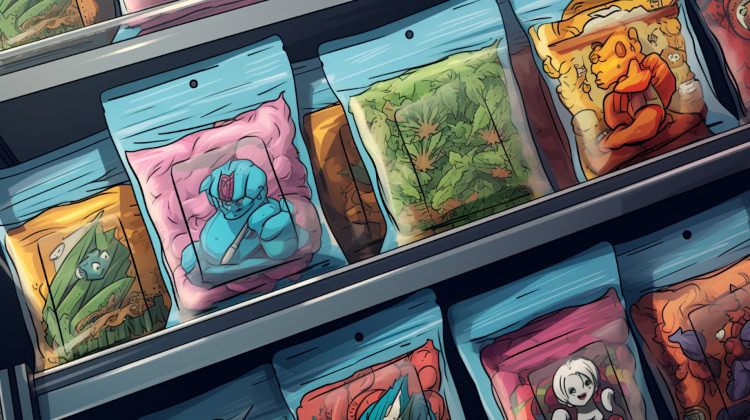
Edibles don't have the same potency as a vape cart but do hit harder thanks to their traveling through the digestive system and metabolization in the liver. This journey increases the effects and duration of edibles compared to flower.
While edibles, like other cannabis products, could be considered potentially addictive in some consumers, it's possible that high levels of sugar found in certain infused food or drinks are driving physical cravings more than THC.
Am I Addicted to Weed? Know the Signs to Watch For
The odds of developing cannabis use disorder vary depending on the study cited. However, warning signs and symptoms are somewhat agreed upon. Organizations like the US Centers for Disease Control (CDC) list the following as warning signs for cannabis addiction and use disorder:
- Using increased levels of marijuana than intended
- Trying but failing to quit
- Spending more time consuming
- Craving for marijuana
- Continued use despite noticeable problems at home, school, or work
- Continued use despite apparent social or relationship problems
- Giving up or pulling away from important activities in favor of using marijuana
- Using marijuana in high-risk situations, such as while driving a car or other heavy machinery
- Continuing to use marijuana despite physical or psychological problems
- Increased use to feel the same high as previously experienced
- Experiencing withdrawal symptoms when stopping marijuana use, such as:2 Anger Or Aggression, Anxiety, Chills, Depressed Mood And Loss Of Appetite, Disturbed Sleep/Dreaming, Headaches, Irritability, Physical Tension, Stomach Pain, or Sweating.
How Common is Cannabis Addiction?

The reported frequency of cannabis addiction can vary significantly depending on the source. Likewise, some consumers may experience cannabis cravings akin to wanting a morning coffee or a late-night snack. Whether that can be considered addiction depends on who you ask.
Agencies like the CDC acknowledge the wide discrepancy, noting that studies cited can be around 10%. Making things more complicated, these figures don't do much to differentiate the frequency of minor and severe cases of cannabis use disorder (CUD).
Research into the subject has revealed that numerous biological, behavioral, and environmental aspects all influence CUD.3 Factors may include but aren't limited to:
- Biological sex
- The age at which use begins
- Prior cigarette smoking
- Early-age alcohol use
- Poor school performance
- Childhood sexual abuse
- PTSD symptoms
How is Cannabis Addiction Treated?
Treating a person's addiction to substances like cannabis often involves psychological and physical care. During the first several days to weeks, a person may experience symptoms such as:
- Anxiety
- Irritability
- Disturbed Sleep
- Depressed Mood
- Loss Of Appetite
- Occasional Physical Discomfort (chills, headaches, etc.)
Withdrawal symptoms may be influenced by various factors, including the amount of THC the person has been consuming and the levels remaining in them.
Quitting cannabis and clearing it from your system isn't considered to be as arduous as experiencing withdrawal from opioids or alcohol, which are often more painful, difficult processes. In many cases, quitting cannabis has been compared to caffeine addiction and its withdrawal symptoms.
Treating cannabis addiction can often be done on your own, though there is nothing wrong with seeking medical support or counseling if you are having trouble stopping cannabis use. A typical medical approach to treating cannabis use disorder may include:
- Education on withdrawal symptoms, proper nutrition and hydration, physical exercise, and proper sleep hygiene.
- Motivational Approaches
- Coping Skills Training, Such As Relaxation Approaches
- Pleasant Activity Scheduling
- Managing Stress/Mood/Anger
- Goal‐setting
Some types of substance abuse and use disorders may be treated with prescribed medications. However, no drug has been approved for cannabis use disorder. CBD has shown potential in treating cannabis addiction by helping ease withdrawal symptoms, relieving cravings, and possibly reducing the chance of relapse. Additional research is required, but the belief is that CBD could modulate dopaminergic neurotransmission and endocannabinoid signaling, two critical pathways in addiction.4
Ways to Prevent Cannabis Addiction
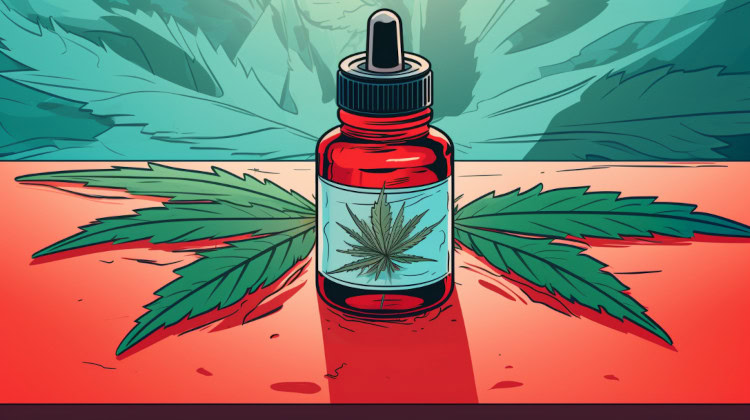
Preventing cannabis addiction, unfortunately, doesn't come with clear-cut steps and solutions. However, many possible options are believed to be highly effective for many consumers. If you are attempting to cut back or cut out cannabis from your routine, consider one or more of the following options:
- Tolerance Breaks: Reducing your cannabis tolerance or taking a break can help reset the body's response to cannabis and possible dependence.
- Microdosing: Minimal amounts of cannabis may help reduce dependency and tolerance while still experiencing the desired effects.
- Lower Potency: Lowering your potency may help, as it is believed that higher THC items could result in greater odds of developing unwanted side effects or an addiction.
- Just Say No (until you’re an adult): Minors are often associated with a higher risk of addiction. While alluring, consider abstaining from weed until you're 18, 21, or even 25 (depending on the study).
- Addiction vs. Dependence: It isn't easy to identify a use disorder or addiction in yourself. However, knowing the signs of addiction (compulsive use and loss of control) and the less common signs of physical dependence can help with identifying cannabis use disorder.
Can You Get Help for Cannabis Addiction?
Yes, support is available if you’re struggling with cannabis use. If you feel like you're addicted to cannabis or any other substance, turn to trusted friends, family, and medical professionals. You don't need to do this alone.
Treatment options may include behavioral therapy, counseling, and peer groups. Talking to a healthcare provider is a good first step. Everyone’s experience is different, but with the right support, managing cannabis use disorder is possible.
References
- Zehra A, Burns J, Liu CK, et al. Cannabis addiction and the brain: A review. Journal of Neuroimmune Pharmacology. 2018;13(4):438-452. doi:https://doi.org/10.1007/s11481-018-9782-9 ↩︎
- Connor JP, Stjepanović D, Budney AJ, Le Foll B, Hall WD. Clinical management of cannabis withdrawal. Addiction. 2022;117(7):2075-2095. doi:10.1111/add.15743 ↩︎
- National Academies of Sciences, Engineering, and Medicine, Health and Medicine Division, Board on Population Health and Public Health Practice. Problematic Cannabis Use In: The Health Effects of Cannabis and Cannabinoids: The Current State of Evidence and Recommendations for Research. National Academies Press (US); 2017. https://www.ncbi.nlm.nih.gov/books/NBK425748/ ↩︎
- Navarrete F, García-Gutiérrez MS, Gasparyan A, Austrich-Olivares A, Manzanares J. Role of Cannabidiol in the Therapeutic Intervention for Substance Use Disorders. Front Pharmacol. 2021;12:626010. Published 2021 May 20. doi:10.3389/fphar.2021.626010 ↩︎
The information in this article and any included images or charts are for educational purposes only. This information is neither a substitute for, nor does it replace, professional legal advice or medical advice, diagnosis, or treatment. If you have any concerns or questions about laws, regulations, or your health, you should always consult with an attorney, physician or other licensed professional.

